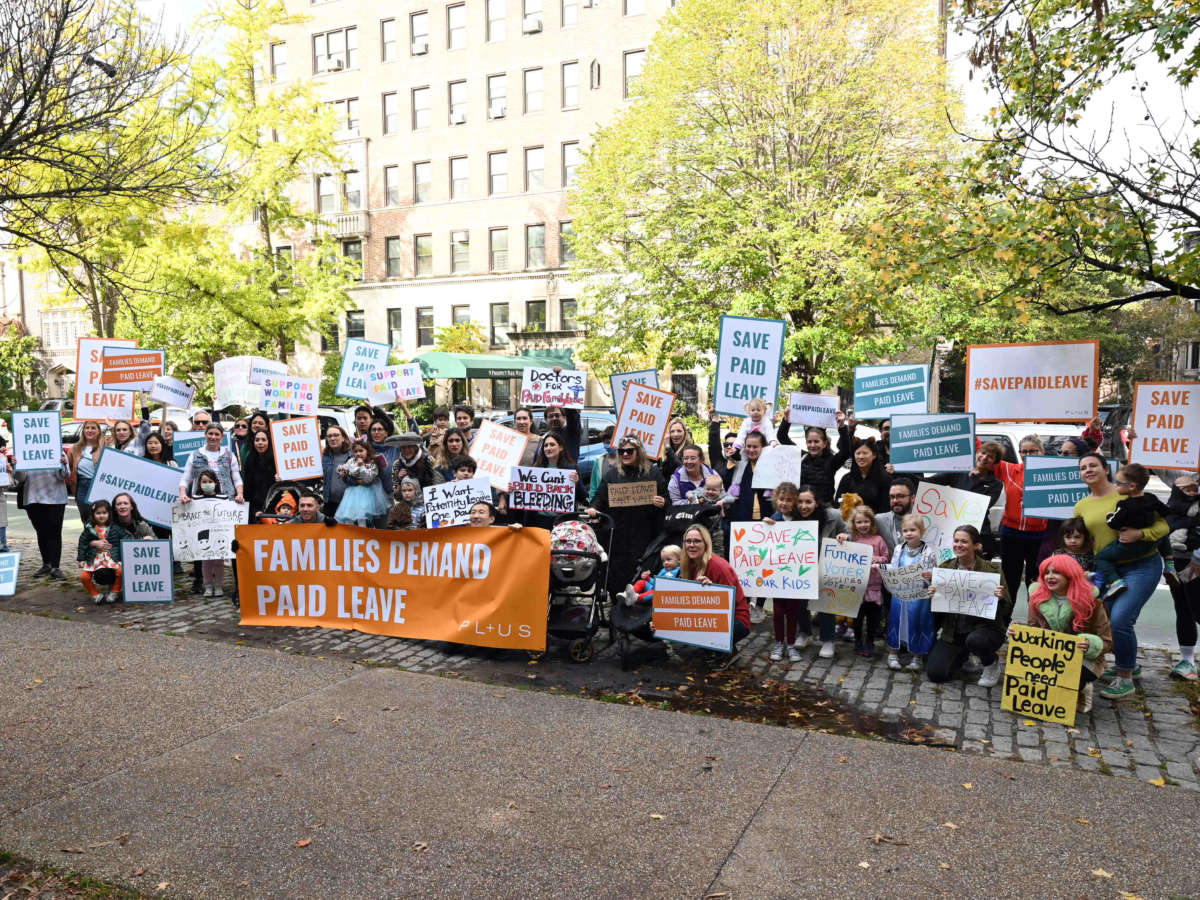A whopping 80% of voters in the United States want the federal government to create a paid family and medical leave program, according to a new survey released Friday.
Navigator, a progressive polling firm, found that 89% of Democrats, 76% of Independents, and 70% of Republicans support the establishment of a federal program that would enable people to take paid time away from work to attend to serious illnesses or provide care for loved ones, including sick or disabled family members and newborn or newly adopted children. Just 12% of voters are opposed.
A majority (52%) of voters — including 68% of Democrats, 57% of Black Americans, and 61% of Hispanic Americans — would be more likely to vote for a candidate who publicly supports paid family and medical leave, according to the survey.
In addition, over half (51%) of voters — including 65% of Democrats, 58% of Black Americans, and 61% of Hispanic Americans — would be more motivated to vote in the upcoming midterm elections if Congress supported the passage of a national paid family and medical leave program, the poll found.
New from @NavigatorSurvey: 80% of Americans support #PaidLeaveForAll. A majority would be more likely to support a candidate who supports it—and they’d be more motivated to vote. pic.twitter.com/IkBwM5N7tj
— Dawn Huckelbridge (@dhuckelbridge) September 23, 2022
“Our nation’s leaders must stop ignoring what the data tell us time and time again — that paid family and medical leave is a critical support that families need, it is what Americans want, and it is what they deserve,” Jocelyn Frye, president of the National Partnership for Women & Families, said in a statement.
Dawn Huckelbridge, director of Paid Leave for All, told Common Dreams that the new survey “mirrors what Paid Leave for All Action has seen in midterm battleground states — 4 in 5 voters support paid family and medical leave, and this is an issue that motivates all voters, but particularly the progressive base and key persuadable groups like Independent women.”
“Paid leave is an issue that all candidates should be running on — and then delivering,” Huckelbridge added.
Six arguments in favor of paid leave were deemed convincing by more than three-quarters of respondents.
Voters were compelled by the fact that the U.S. is one of only seven countries in the world without federally guaranteed paid family and medical leave; far outpacing the U.S., the average length of maternity leave worldwide is more than six months.
The need for a federal paid family and medical leave program was clear to an overwhelming majority of respondents after they were informed that just 15% of workers in the U.S. — typically high-wage managers — receive such benefits through their employers.
Also persuasive were studies showing that paid leave policies increase the likelihood that women return to the workforce following childbirth and decrease reliance on public assistance programs.
The three most convincing arguments for paid leave focused on how it:
enhances household well-being, including better early childhood development and more economic security for parents;
improves health outcomes for infants, mothers, and the elderly; and
boosts workplace morale and reduces employee turnover.
In a Common Dreams opinion piece published Thursday, Vicky Badillo of the Workers Defense Project in Austin wrote that “it’s time for our lawmakers to deliver what so many people are calling out for: a national paid leave policy.”
“Paid leave is a human right and a matter of dignity — it’s something every single one of us should have access to, regardless of who we are, where we live, or what we do,” Badillo continued. “Lives are on the line.”
“There is no economic and racial justice without access to paid leave,” she added. “Ensuring people have the time they need to be with and care for themselves and their families is morally the right thing to do — and it also makes sense for our economy and our national well-being. Investing in paid leave will help our families, our communities, and our nation.”
Poll results are based on online surveys conducted among a sample of 1,001 registered voters from September 8 to September 11.
This story has been updated to include a statement from Dawn Huckelbridge, director of Paid Leave for All.


